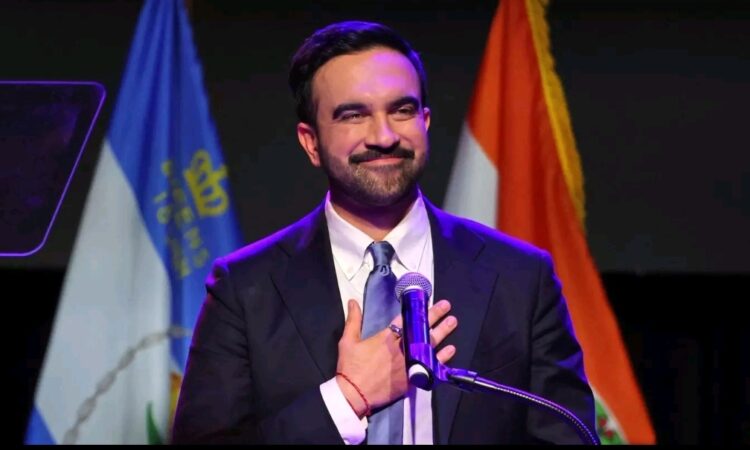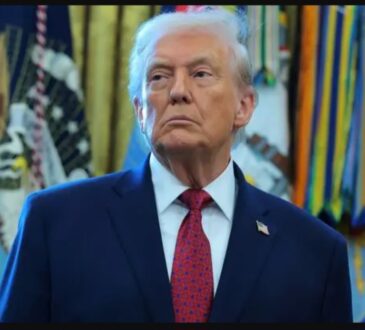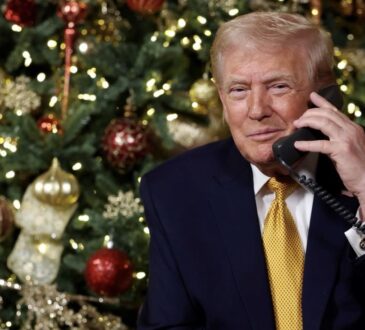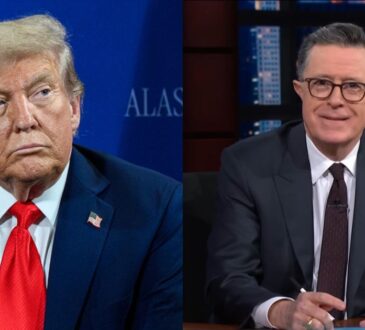
Zohran Mamdani’s rise to become New York City’s first Muslim mayor has captured the attention of people across the country. At just 34 years old, Mamdani has already made history, not only for his background but for the energy and conviction he brings to city politics.
Describing himself as a democratic socialist, he ran a campaign built on the promises of fairness, housing affordability, and putting working people at the center of city policy. According to CBS, Mamdani won the mayoral election with 50.4% of the votes, beating out independent candidate Andrew Cuomo, who took 41.6%, and Republican candidate Curtis Sliwa, who received only 7%.
During his victory speech, Mamdani didn’t hold back from addressing President Donald Trump directly, knowing full well that the moment would grab national attention. He looked into the camera and said, “Since I know you’re watching, I have four words for you: turn the volume up.
The statement was seen as both bold and defiant, a sign that the new mayor was not afraid to challenge powerful figures. Later, Trump reacted on his social media platform, Truth Social, with a brief but pointed comment: “And so it begins.” That exchange immediately set the tone for what many expect to be a complicated relationship between the new mayor and the president.
The growing tension between them has sparked speculation about how their interactions will unfold in the coming months. One possible test of that relationship could come next summer, when the World Cup Final is held at MetLife Stadium in New Jersey, just a short drive from New York City.
Mamdani, as the city’s mayor, is expected to attend the event, and it’s likely that President Trump will also be there, given the global importance of the match. In a past interview with The Guardian, Mamdani was asked about what he would do if he encountered Trump at the stadium.
He made it clear that he would not shy away from making his presence felt. “There’s no amount of censorship that can quiet the actual response of people when they see this president in person,” he said, referring to the anger many New Yorkers feel toward Trump’s policies.
Mamdani added that he would use the opportunity to once again speak up for the city’s working-class residents, emphasizing that his leadership is about standing with those who have been forgotten or left behind.
Mamdani also expressed frustration with FIFA, the international governing body of soccer, for introducing a new “dynamic pricing” system for World Cup tickets. This pricing model allows ticket costs to fluctuate based on demand, which means prices could rise dramatically.
Mamdani criticized the decision, saying it showed how FIFA consistently prioritizes profit over the fans who truly love the game. He noted that this approach could raise FIFA’s revenue by as much as 400% compared to the last World Cup in Qatar, calling it a clear example of greed within the organization. In his view, football should bring people together, not push them out with unaffordable ticket prices.
Zohran Mamdani’s personal story adds another layer to his appeal. He was born in Uganda and moved to New York City with his family when he was seven years old. Growing up in Queens, he attended the Bronx High School of Science, one of the city’s most competitive schools, before going on to earn a degree in Africana Studies from Bowdoin College.
His experiences as an immigrant and a person of color have deeply influenced his political outlook and commitment to social justice. In 2018, he became a naturalized U.S. citizen a milestone that he says strengthened his belief in the power of civic engagement and representation.
Before entering politics, Mamdani worked as a housing counselor, helping families navigate complex issues like evictions and rent increases. He also pursued a passion for music, performing as a rapper and using his lyrics to highlight issues such as inequality and discrimination.
His journey from community work and music to City Hall has made him a symbol of a new kind of leadership one that blends activism, culture, and public service.
Mamdani’s campaign for mayor focused heavily on making New York a more affordable place to live. He spoke often about the struggles of renters, the rising cost of living, and the challenges faced by working-class families trying to stay in the city.
His message resonated with many New Yorkers who feel that the city has become too expensive and too focused on serving the wealthy. As he steps into office, Mamdani has promised to prioritize housing reform, public transportation, and fair wages.
For many people, Mamdani represents a shift in what political leadership can look like in America’s largest city. His victory shows that New York is open to new voices and new ideas, even when they challenge the status quo.
Whether his relationship with President Trump turns into open confrontation or cautious diplomacy, one thing is clear: Mamdani intends to use his platform to speak for those who have long felt unheard.
His story—from immigrant roots to the highest office in the city—is not only a political triumph but a powerful reminder of the changing face of American leadership.




